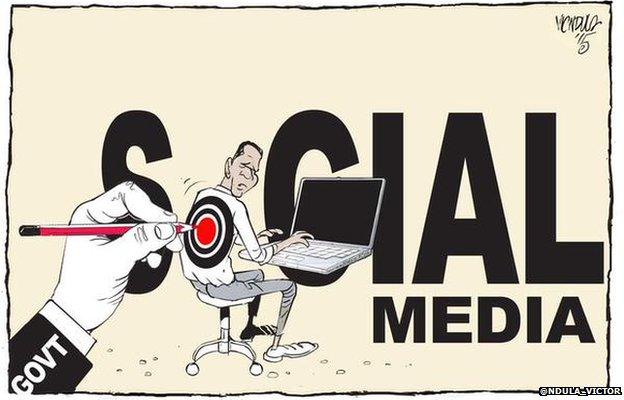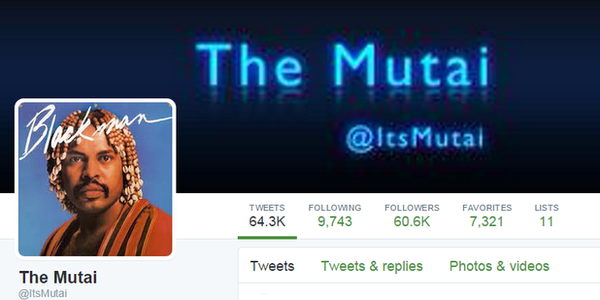#FreeSpeechStories: Arrested for a tweet
- Published

Bloggers and their supporters feel under threat in Kenya
Kenyans on Twitter, or KOT's as they're known, are asking whether the country is going through "dark days" after a blogger was arrested for tweeting.
"I posted a blog about mismanagement of funds in Isiolo County in eastern Kenya and shared it on Twitter," Abraham Mutai told BBC Trending. "Within hours my blog was taken down and my Twitter page was deactivated."
Mutai was arrested on Saturday afternoon in Mombasa, where he's based, and taken to the capital Nairobi. He was charged with "using a media platform to cause public anxiety."
He was released a day later and his blog and Twitter account, external were reinstated. He says the allegations he made about Isiolo County are now being followed up by authorities and he believes the 25,000 tweets under the hashtag #FreeMutai hastened his release.
"If we as bloggers don't take a stand right now, we may all suffer the same fate in the near future #FreeMutai," wrote Xtian Dela, external to his 400,000 followers. "If you remain quiet about Mutai, who will speak when they come for you?" asked Kenyan entrepreneur Francis Waithaka, external.
Despite the support, the experience had a chilling impact on how free Mutai feels to continue his work.
"Personally, I'm afraid right now." he says. "I'm thinking about my safety and I've already scaled back my tweets. Now I need to think twice about what I say online."
Mutai has become well known in Kenya for investigating corruption and explaining cases in short, easy-to-understand bursts.

Kenya passed a wide-ranging and controversial set of security measures in December in an attempt to combat the threat posed by Islamic militants from neighbouring Somalia. Some parts of the law were suspended by the country's High Court, but an atmosphere of fear remains, says the BBC's Juliet Njeri in Nairobi.
"People are censoring themselves online because they are worried they'll get in trouble," she says.
Some Kenyans are using the tag #DarkDays to express concern about the new laws on Twitter.
Keriako Tobiko, Kenya's public prosecutor, says he can't comment on the Mutai case because an investigation is ongoing. But he denied that the government is using the new security law to curtail freedom of speech.
"Those making such claims are being alarmists merely crying wolf for attention," Tobiko told BBC Trending in a text message. "Check out the kind of wild stuff that is said about the government and President [Uhuru] Kenyatta online and you'll confirm there is no truth in the claims."
And what about the future for one of the country's most well-known bloggers?
"I will continue investigating corruption in Kenya," Mutai says. "Whether I will continue publishing it is another question."
Blog by Anne-Marie Tomchak
You can follow BBC Trending on Twitter @BBCtrending
All our stories are at bbc.com/trending